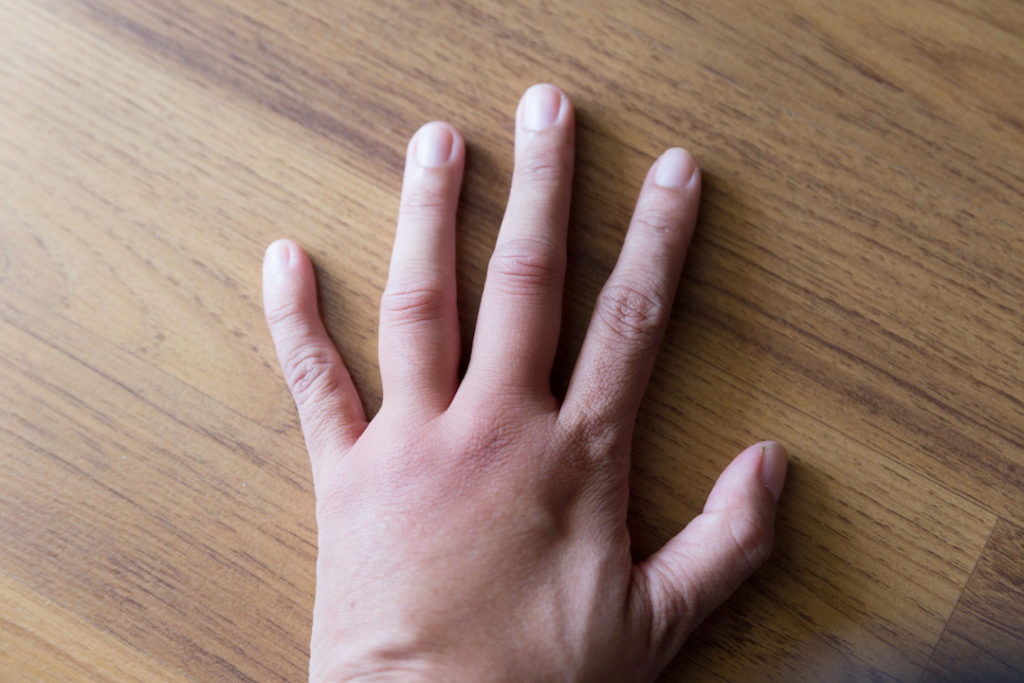10 Reasons You Have Swollen Fingers
December 10 2018
You have arthritis pain, and the inflammation in your joints causes your fingers to swell up and resemble little sausages. Or maybe you’ve chowed down a salty meal, and now your wedding ring is stuck on your finger. Should you freak out? Probably not. Fingers swell for a lot of reasons-many of them harmless-but sometimes the puffiness (medical term; dactylitis) points to more serious health conditions. Here are some of the common causes of swollen fingers, and when you should call your doctor.
It’s really hot outside
Heat causes blood vessels to expand, which allows more heat to escape through your skin so you can keep cool, explains rheumatologist Dr Tammy Olsen Utset. As the vessels stretch, some of their fluid can leak into your soft tissues and cause puffiness.
Dr Utset says this type of swelling tends to go away as you use your hands and continue your regular activity. But if you notice puffiness only in your hands and fingers (and not your legs), accompanied by pain or a weak grip, that could be a sign it’s not just the heat and you need to consult your doctor.
Too much salt
Lots of chips and guac, or anything fried could be the cause of your frankfurter fingers. Your body likes to keep a consistent salt-to-water balance. Taking more salt in means your body compensates by retaining more water, which explains the swelling, Dr Utset says.
Typically, mild swelling brought on by salty foods goes away on its own within a day, although, it can lasts longer depending on how much extra salt is in your system. If you cut back on salt and the swelling persists, see your doctor, Dr Utset advises.
Osteoarthritis or rheumatoid arthritis
If it’s the bony finger joints themselves that are enlarged (i.e., you can’t get your rings over your knuckles), osteoarthritis may be to blame, especially if your fingers are swollen in the morning. This age-related form of arthritis is caused by the wearing down of the cushioning tissues at the end of your joints. Osteoarthritis is often, but not always, accompanied by pain and stiffness, Dr Utset says. Rheumatoid arthritis (RA), an autoimmune disease that attacks the lining of the joints, can also cause swelling. Unlike osteoarthritis, RA isn’t age-related and can happen to anyone, at any age. Swelling in people with RA often happen in the wrists and finger joints. “RA can cause the joints to swell up as well as cause inflammation in between the joints,” says family medicine expert Dr Neha Vyas.
Carpal tunnel syndrome
When the nerve that runs from the forearm to the palm of the hand is pinched or squeezed at the wrist, that’s when carpal tunnel syndrome develops, Dr Utset explains. The resulting swelling is usually accompanied by pain, burning, tingling, or numbness in the hands and fingers-symptoms that often develop slowly over time. Research suggests carpal tunnel affects three times as many women as men.
It might be a blockage in your lymphatic system
Lymphedema is a limb-swelling disease that results when lymph fluid (which carries waste, bacteria, and viruses out of the body) doesn’t adequately drain. Your fingers and toes may swell, and usually your arms and legs will swell, too. Your skin may also feel tight or thicker than usual. Lymphedema has been linked with surgery or radiation breast cancer treatments. In rare cases, lymphedema can also be caused by the abnormal growth of your lymph system.
Preeclampsia
Some swelling is typical for expectant mums. But swelling in the hands and face-especially if pressing your thumb into your skin leaves a noticeable indentation-can be a red flag for preeclampsia. Preeclampsia is a pregnancy complication characterised by high blood pressure. If it goes untreated, it can lead to organ damage, including the liver and kidneys. Dr Vyas says that in addition to swelling, signs of preeclampsia include blurry vision, high protein in your urine, headaches, and nausea and vomiting. The risk of preeclampsia is highest during the first pregnancy or pregnant women older than 40. It’s also common in women carrying twins or triplets, and those who are obese.
Raynaud’s disease
Raynaud’s is a narrowing of your arteries, often caused by cold weather or stress. That narrowing limits blood circulation. Swelling-along with prickling or pain-occurs when circulation returns (as you warm up or your stress dissipates). The condition is common and more likely to occur in women than men, Dr Utset says. If you notice your fingers or hands are bluish or pale before they swell, that’s one indicator of Raynaud’s.
Exercise
During exercise, your hands might swell because the blood vessels in your body is responding to the increased energy demands on your muscles. “When it comes to exercise, our body produces heat. The vascular system allows more fluid to release into our fingers, hands, and toes. This is the way the body cools down,” Dr Vyas says.
Kidney issues
If your kidneys fail to remove excess fluids-also known as edema-your body will retain it, which could result in swollen hands. Edema can affect any part of your body, but swelling mostly occurs in your hands, feet, legs, and ankles. “When your kidneys aren’t filtering what needs to go out, the fluids stay within you,” Dr Vyas explains. “The kidneys also help regulate the electrolytes in our body, so any type of kidney disease or kidney issue can affect this process. Hypertension and diabetes are some conditions that can cause these kidney problems,” she adds.
Medications
It’s also worth noting that some medications you’re taking can also cause swelling in the fingers and hands. Dr Vyas says high blood pressure drugs, diabetes medications, steroids, and birth control pills can all cause puffiness in the hands.
Sourced from Prevention.
